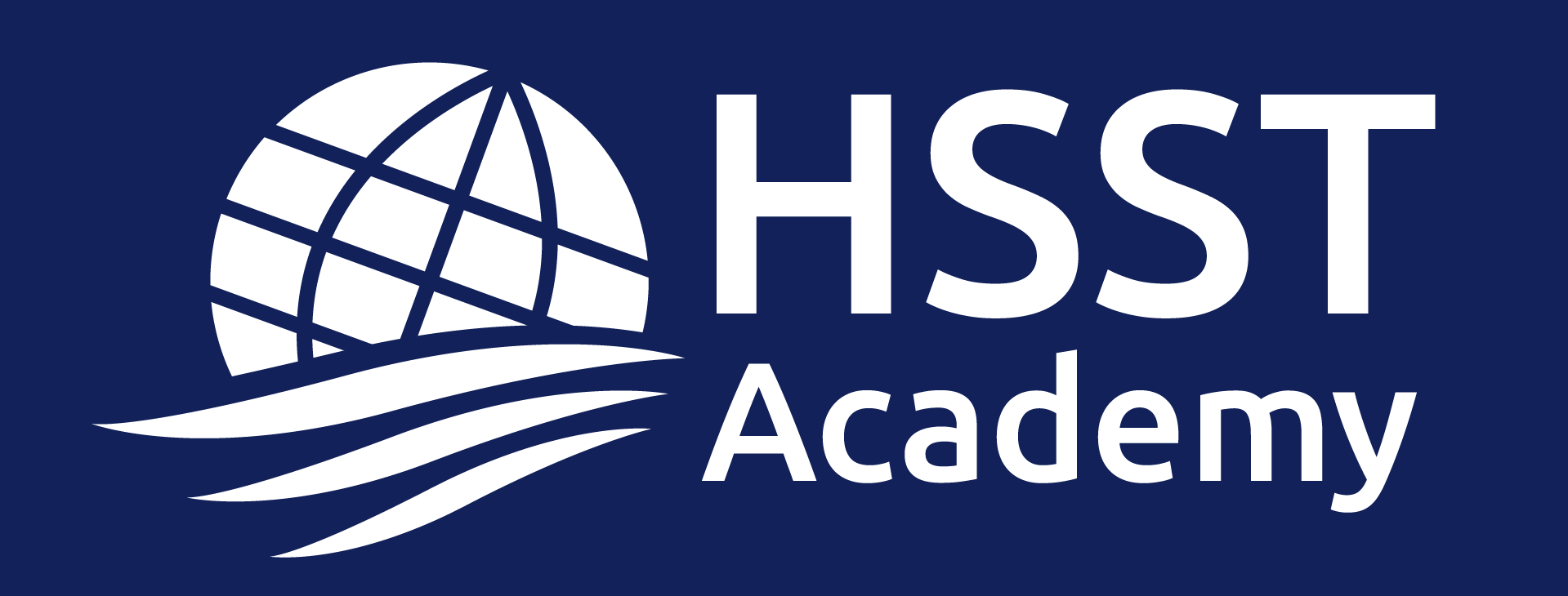Bachelor STT (BSc)
Voraussetzungen | Inhalte | Module
Bachelor of Shipping, Trade & Transport (BSc)
- berufsbegleitend
- online
- Dauer: 13 Monate
Seit Januar 2023 ist der Studiengang als online-Studiengang akkreditiert und wird seitdem auch komplett online durchgeführt.
Ablauf Hybrides Studium
Somit kann das Studium in Hamburg innerhalb von ca. 13 Monaten absolviert werden. Es erfolgt berufsbegleitend abends und samstags.
Für weitere konkrete Informationen zur Anmeldung und dem Studium selbst nutzen Sie bitte das Anmeldeformular. Für konkrete Fragen melden Sie sich bitte direkt per Mail bei Dipl.-Hdl. Dirk Aufermann unter Dirk.Aufermann@hsst-academy.com
Die London Metropolitan University (London Met) und die Hamburg School of Shipping and Transportation Akademie (HSST Academy) haben gemeinsam einen Studiengang entworfen, der die abgeschlossene Berufsausbildung als großen Teil für das Studium anerkennt.
Der Studiengang Bachelor of Shipping, Trade and Transport ist auf drei Jahre ausgelegt, wobei die ersten zwei Jahre bereits durch die Berufsausbildung im dualen System abgeleistet sind.
Somit kann das Studium in Hamburg innerhalb von ca. 13 Monaten absolviert werden. Es erfolgt berufsbegleitend abends und samstags.
Bei erfolgreichem Abschluss Ihres Studiums können Sie unter Berücksichtigung Ihrer Leistungen im Berufsabschluss maximal 180 Credit Points gemäß ECTS bzw. 360 Credit Points gemäß UKCATS erreichen.
Leistungspunkte gemäß European Credit Transfer System (ECTS) drücken den Gesamtstudienaufwand aus. Jedes einzelne Seminar wird als Modul abgeschlossen und mit ECTS bewertet.
Im Anschluss an dieses so-genannte „top-up Studium“ an der HSST Akademie bieten sich unseren Absolventen*innen weitere attraktive Studienmöglichkeiten, beispielsweise der Erwerb eines Postgraduate Diploma an der Solent University. Nähere Informationen dazu finden Sie hier:
Postgraduate Diploma in International Trade and Maritime Law (solent.ac.uk)
Der Leitgedanke des Studiums ist die Verknüpfung akademischer Fähigkeiten mit beruflicher Expertise und Erfahrung, welche durch den akademischen Unterbau des Bachelor-Studiums der LMU und die Lehrpläne für die Ausbildung von Kaufleuten geleistet wird. Die LMU hat eine lange Tradition in der akademischen Ausbildung für die Bereiche Logistik sowie Shipping. Die HSST ist ein etablierter Anbieter beruflicher Bildung im maritimen Bereich.
Die Dozenten für den Studiengang setzen sich aus Experten der Transportwirtschaft und Professoren von Hochschulen und Universitäten zusammen. Die Seminarsprache ist Englisch.
Der Studiengang richtet sich an junge Berufstätige mit dem Wunsch, berufsbegleitend einen akademischen Abschluss zu erwerben und solche, die anschließend z.B. einen Postgraduate Diploma erwerben möchten.
Module des Studiengangs Shipping, Trade & Transport (BSc)
Nachfolgend werden die 9 Modultitel des Studiengangs aufgeführt und die Modulinhalte kurz beschrieben. Bis auf das erste Modul Workplace Report, können in jedem Modul 7,5 ECTS bzw. 15 UKCATS für den Studienabschluss erworben werden.
Für das erfolgreiche Bestehen der Module sind verschiedene Leistungen zu erbringen wie zum Beispiel Präsentationen, Hausarbeiten und Examensklausuren.
Work experience is an important part of any Business Degree. On the evening degree this experience
is obtained concurrently with the part-time studies for the modules at Intermediate Level. The work
experience will be obtained through the Dual Apprenticeship experiences of the student. The project
will link academic work with the workplace so as to develop and exploit knowledge and skills in the
students’ organisation and the wider business environment.
Producing a final level dissertation/research project is one of the most important, and difficult, accomplishments of a graduate. It therefore needs systematic preparation and reflection for the graduate to obtain full value from the process. This unit provides this opportunity and allows the
student to incorporate their experience of a work placement in the preparation of their project.
Students will produce a research proposal as the basis for their bachelor´s thesis. Thsi proposal and the feedback given by the instructor will enable them to work on their dissertation throughout the year.
To gain insight into what it means to manage strategically and to acquire the skill to devise, evaluate,
implement, and plan business strategy in the shipping, trade & transport industry.
This module aims to explore current concepts, theories, and strategies in international marketing; at
the same time the unit offers the possibility to explore marketing practices in various global service
industries.
This module looks at different perspectives on importing from abroad and aims to assess the
characteristics of international purchasing, evaluate the economic, business and political factors
influencing this process and critically review the associated procedures, risks and opportunities.
This module looks at the supply chain with an emphasis on the impact of logistics. The module
aims to develop an understanding of the formulation, implementation and evaluation of the strategic
supply chain. Students will develop an appreciation of logistics within the global context and of the
environmental impacts and debates around modern supply chain management.
This module provides a focused, comprehensive, and relevant coverage of contemporary multinational
businesses. The module will examine the effects of the internationalisation of the firm and its impact
on the global economy. It will help students understand different ways of analysing multinational firms
and their impact. It will explore the operation of multinational business in different regions of the
world and will examine their prospects.
This module looks at the legal framework of trade and the role of key international institutions such as
the World Trade Organisation. The World Trade Organisation forms a central feature of
intergovernmental relationships and has raised several issues in terms of its impact on trade as well as
legal, social, political, and economic issues. This module looks at aspects of the regulation of trade at
international level. It explores the influence of international institutions and the effect that they have
on the role of governments. Emphasis will be placed on contemporary issues in trade regulation as
well as the resolution of disputes.
Abitur oder Fachhochschulreife und
eine abgeschlossene Berufsausbildung
- Schifffahrtskaufmann/frau
- Speditionskaufmann/frau
- Außenhandelskaufmann/frau
oder eine andere vergleichbare Ausbildung
Wir beantworten gerne Ihre Fragen
Melden Sie sich bei Dipl-Hdl. Dirk Aufermann


